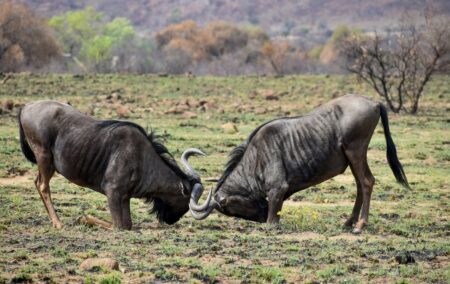Whilst our democratic-era politics has had parties and personalities rise and fall since at least 1999, it has in many ways revolved around a battle between the ANC and the DP/DA.
These two parties had the clearest conflicting visions for the country: the National Democratic Revolution (NDR) and non-racial liberal constitutionalism (NRLC). Both have deviated from their visions in the direction of the other’s vision from time to time. During the Mandela and Mbeki presidencies, the ANC didn’t attempt to strangle the capitalist economy. The DA has occasionally lurched into racialism, most seriously in 2018 when the DA declared that “race remains a proxy for disadvantage in South Africa”.
In 2025, however, both parties remain committed to their projects. The DA now says with regard to redress: “Where it is necessary to identify specific beneficiaries, they should be identified through means-testing to ensure that interventions reach those who are truly in need.” It talks of “freeing” South Africa from race classification.
The ANC has recommitted itself numerous times over the last few months to the NDR, declaring that its participation in the Government of National Unity (GNU) is simply a strategic decision which will allow it to continue to implement the NDR. There is no hint whatsoever of any compromise on the NDR.
There was a period last year when there was a brief hope that the NDR and NRLC could temporarily work towards the same ends, and that the NDR’s goal of keeping the ANC in control of political power and the NRLC goal of economic growth could be aligned. The ANC would accept some economic reforms, the DA would accept the continuation of racial legislation.
Ultimately, however, the NDR’s obsession with control over all decision-making cannot be reconciled with any compromise on policy or budgeting. The DA’s hope for economic growth has little chance in a policy space which remains committed to centralisation and racial legislation.
This has become apparent during the battle over the budget and the proposed VAT hike. The ANC has refused even the most minor concessions to the DA on a spending review and shared control over the economic reform project “Operation Vulindlela”.
As this piece is being written, the GNU seems set to disintegrate over these differences. Yet both parties are in this bizarre standoff, daring the other to pull out the final Jenga block and collapse the GNU. ANC secretary Fikile Mbalula said on Monday: “If the DA walks” and “If the DA stays”, implying that the choice of leaving the GNU was entirely up to the DA. At the same time, Helen Zille has stated that the DA is “loyal” to the GNU and has accused the ANC of betrayal.
This is because all polls constantly show that South Africans by and large support the GNU. A Brenthurst Foundation poll, carried out from late February to mid- March, finds 57% of voters believe the GNU is performing ‘well’, and only 29% think ‘poorly’. 60% believe it is better than the previous only-ANC government.
When voters were asked which coalition they would like to see governing their municipality, the most popular answer was a straightforward ANC-DA coalition, at 31%, and in second place, a 10 -party GNU coalition, at 20%. A combination of the ANC, the EFF and MK only scored 26% altogether, with an ANC-EFF coalition being the least popular, with 16% support.
Whilst most voters don’t see the ideological clash between the NDR and NRLC, they do see the powerful brands of the two main parties. The ANC is the party of liberation, of social grants, of RDP houses. The DA is the party of good governance and anti-corruption. It seems that a majority of South Africans hoped the GNU could combine these two brands into an effective government.
It seems the fates of the DA and ANC have been bound together. Neither can triumph whilst the other remains an effective political force. Most South Africans desperately want these two to work together.
Whilst it seems for now that the GNU is destined to collapse, the two parties will be working hard to convince South Africans that their side is the victim and that the other has destroyed the GNU.
Think of a nasty, messy, divorce where each of the parents tries to turn the kids against the other, and you might get a pretty good picture of what the next couple of months will look like in our politics. The other parties are playing the part of distraught aunts and uncles or dodgy new boyfriends.
What we have learned from the GNU, however, is that there can be no compromise over the NDR. The ANC can abandon the NDR and become a social democratic party like that of the Labour Party in the UK, or the DA can abandon constitutionalism and become a more suburban ANC, but these two forces cannot coexist. They are engaged in a delicate tango of death. There can only be one outcome.
The views of the writer are not necessarily the views of the Daily Friend or the IRR.
If you like what you have just read, support the Daily Friend.

